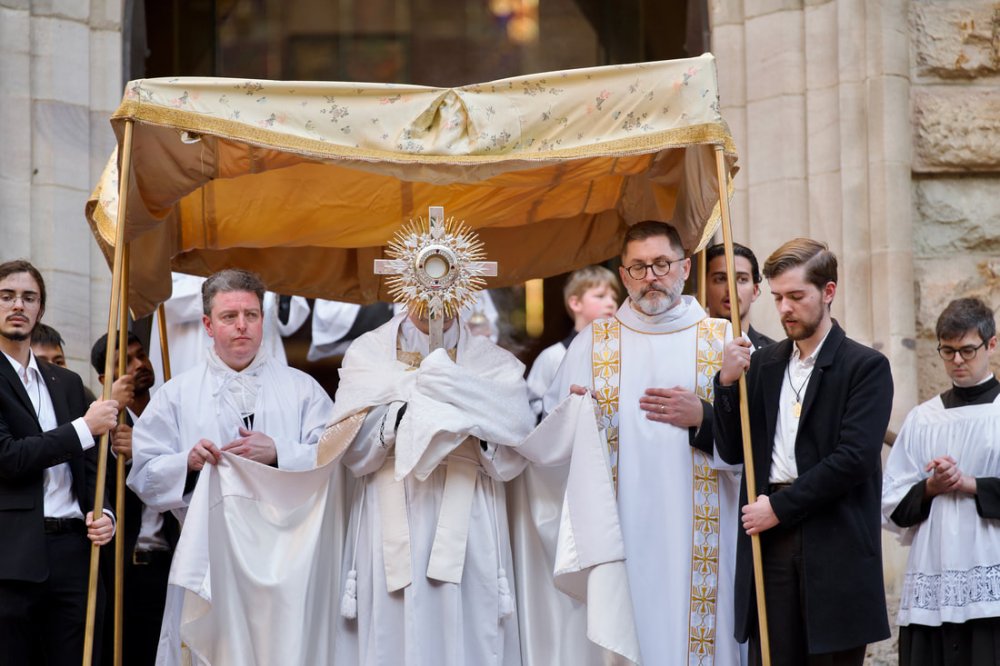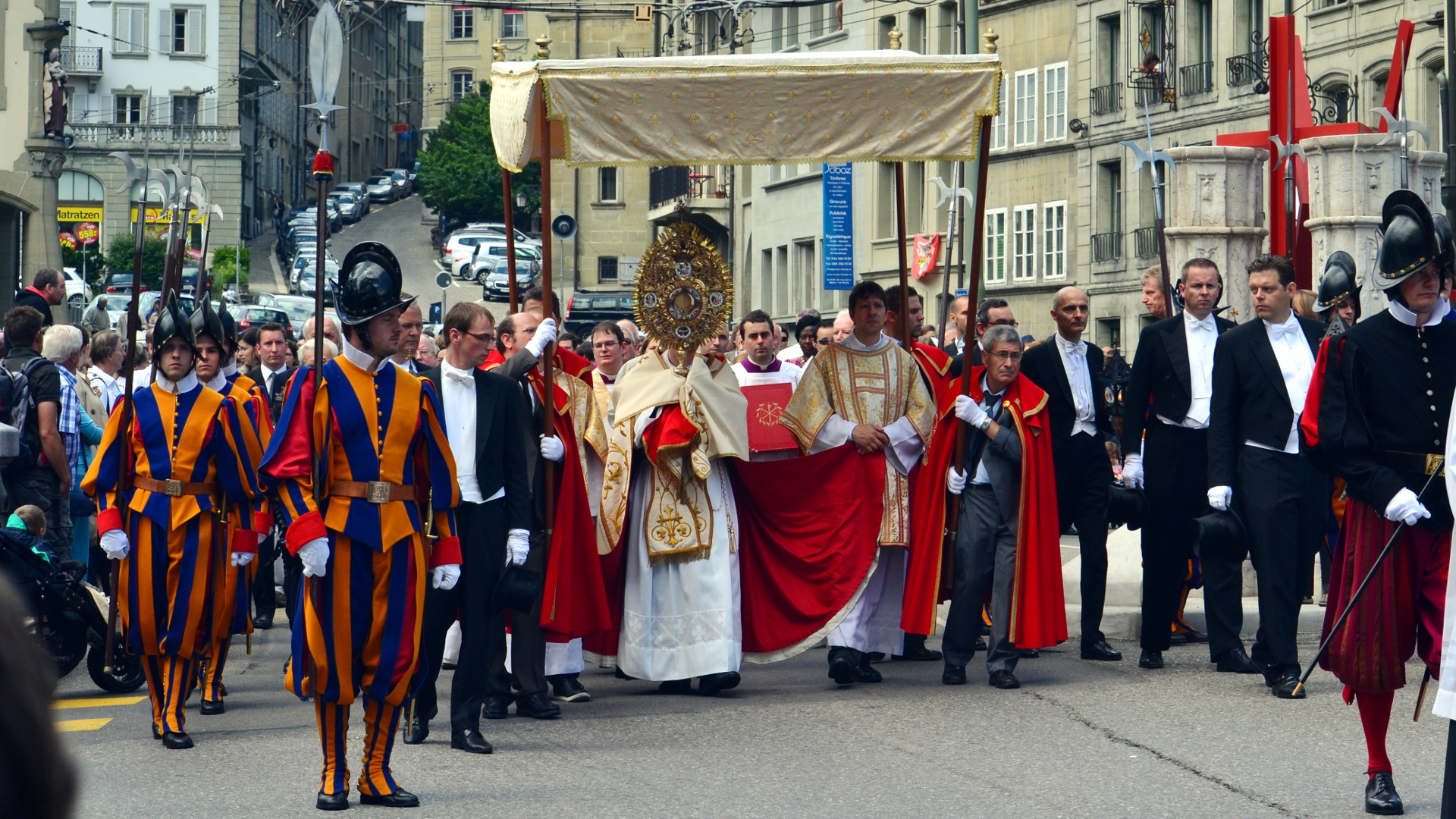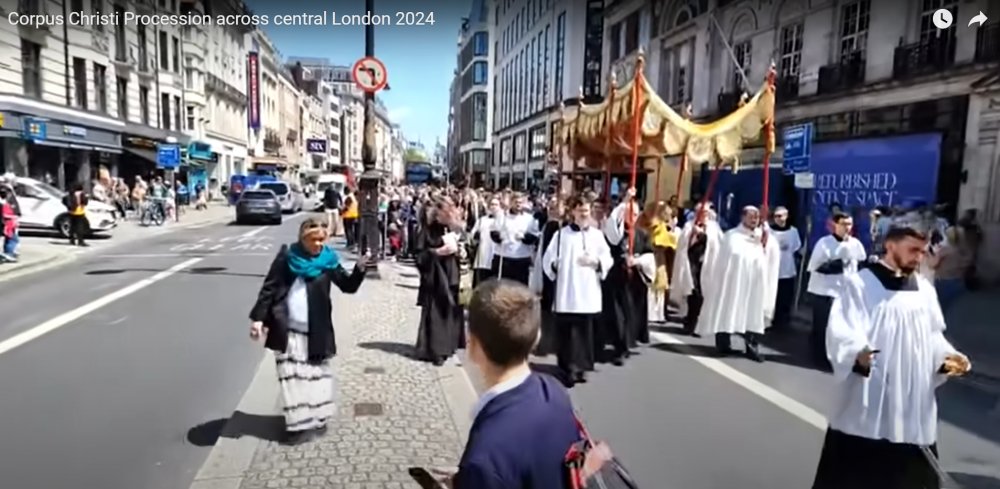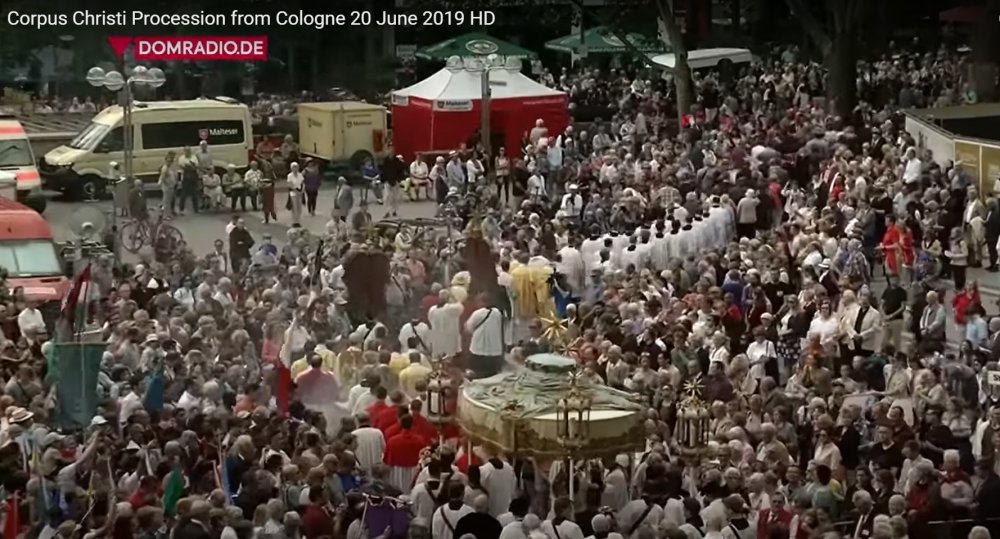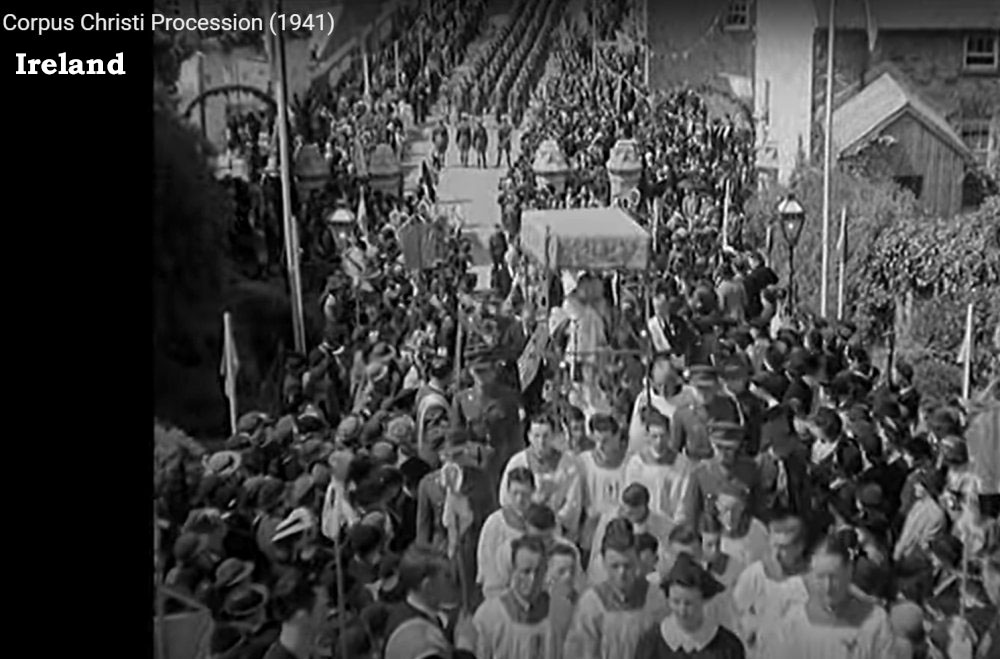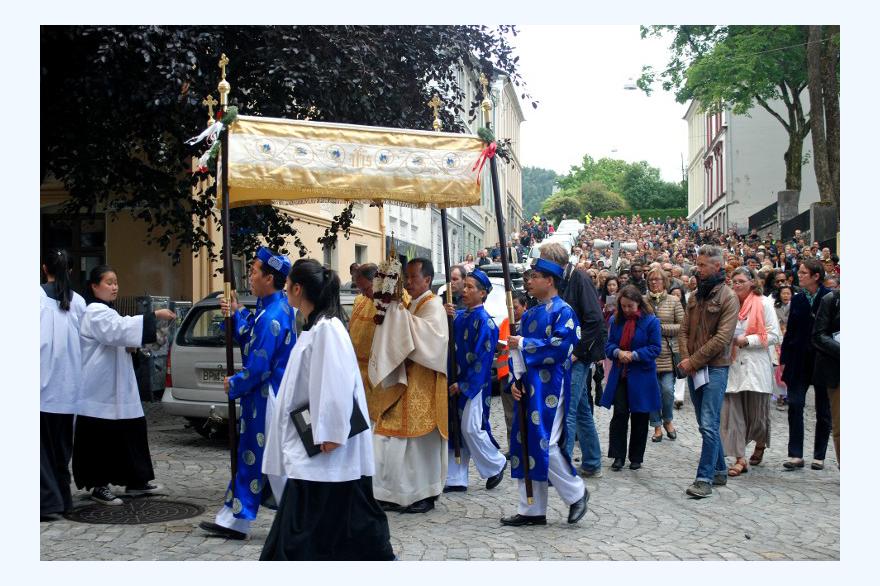The Feast of Corpus Christi - Sunday 22nd June 2025
On the second Sunday after Pentecost, we celebrate the
Solemnity of the Most Holy Body and Blood of Christ, also
known as the Feast of Corpus Christi, which is Latin for
“the body of Christ”.
This feast day commemorates the Eucharist, the meal in which
we partake of the Body and Blood of Christ. The Eucharist is
at the heart of our Catholic faith and traditionally, holds
a special place among the sacraments.
The Catechism of the Catholic Church has this to say about
the importance of the Eucharist:
The Eucharist is "the source and summit of the
Christian life. The other sacraments, and indeed all
ecclesiastical ministries and works of the apostolate, are
bound up with the Eucharist and are oriented toward it. For
in the blessed Eucharist is contained the whole spiritual
good of the Church, namely Christ himself, our Pasch.
The Eucharist was instituted by Jesus at the Last Supper and
this institution of the sacrament is celebrated on Holy
Thursday. However, the emphasis of the Triduum is on the
passion, death and resurrection of Jesus, which creates the
need for another feast day focusing on the Eucharist itself.
As Catholics, we believe in transubstantiation, the Real
Presence of Jesus in the Blessed Sacrament of the Eucharist.
The mode of Christ's presence under the Eucharistic species
is unique. It raises the Eucharist above all the sacraments
as "the perfection of the spiritual life and the end to
which all the sacraments tend.
In the most blessed sacrament of the Eucharist "the body
and blood, together with the soul and divinity, of our Lord
Jesus Christ and, therefore, the whole Christ is truly,
really, and substantially contained. This presence is called
'real' - by which is not intended to exclude the other types
of presence as if they could not be 'real' too, but because
it is presence in the fullest sense: that is to say, it is a
substantial presence by which Christ, God and man, makes
himself wholly and entirely present.
The Feast of Corpus Christi emphasizes and celebrates this
Real Presence of Jesus in the Eucharist.
The feast of Corpus Christi was first suggested by St.
Juliana, a nun of Liege, Belgium, who personally had a
strong devotion to the Blessed Sacrament and who longed for
a feast in honour of the Eucharist. A papal bull was issued
by Pope Urban IV in 1264 commanding the universal observance
of the feast. Many of the prayers and hymns associated with
the feast of Corpus Christi have been attributed to St.
Thomas Aquinas, who composed them at the request of Pope
Urban.
For us Catholics, every Mass is a commemoration of Jesus’
Last Supper and it is also a proclamation and a
participation in this mystery. The feast of Corpus Christi
helps us to refocus on what we are called to do at every
Mass – to celebrate our belief in the risen Christ, to
witness to our faith in that living Christ by how we live
our lives and to become Christ by our receiving His Body and
Blood.
In addition to the weekly celebration of the Mass on the
feast of Corpus Christi, Eucharistic Adoration will take
place in many parishes. In this Year of Faith, Pope Francis
I has invited the cathedrals of the world to participate in
a Worldwide Eucharistic Adoration on Sunday, June 2 from
5:00pm-6:00pm (Rome time). The theme of this Eucharistic
Adoration is “One Lord, One Faith”.
In the announcement made on Tuesday, May 28 at the Holy See
Press Office, Archbishop Rino Fisichella, president of the
Pontifical Council for Promoting the New Evangelization,
said the following:
“It will be an event occurring for the first time in the
history of the Church, which is why we can describe it as
‘historical’. The cathedrals of the world will be
synchronized with
Rome and will, for an hour, be in communion with the Pope in
Eucharistic adoration. There has been an incredible response
to this initiative, going beyond the cathedrals and
involving episcopal conferences, parishes, lay associations,
and religious congregations, especially cloistered ones.”
From the Cook Islands to Chile, Burkina Faso, Taiwan, Iraq,
Bangladesh, the United States, and the Philippines, the
dioceses will be synchronized with St. Peter’s and will pray
for the intentions proposed by the Pope .”
The Pope has proposed two intentions.
The first is: “For the Church spread throughout the world
and united today in the adoration of the Most Holy Eucharist
as a sign of unity. May the Lord make her ever more obedient
to hearing his Word in order to stand before the world ‘ever
more beautiful, without stain or blemish, but holy and
blameless.’ That through her faithful announcement, the Word
that saves may still resonate as the bearer of mercy and may
increase love to give full meaning to pain and suffering,
giving back joy and serenity.”
Pope Francis’ second intention is: “For those around the
world who still suffer slavery and who are victims of war,
human trafficking, drug running, and slave labour. For the
children and women who are suffering from every type of
violence. May their silent scream for help be heard by a
vigilant Church so that, gazing upon the crucified Christ,
she may not forget the many brothers and sisters who are
left at the mercy of violence. Also, for all those who find
themselves in economically precarious situations, above all
for the unemployed, the elderly, migrants, the homeless,
prisoners, and those who experience marginalization. That
the Church’s prayer and its active nearness give them
comfort and assistance in hope and strength and courage in
defending human dignity.”
SOLEMNITY OF THE MOST HOLY BODY AND BLOOD OF CHRIST (CORPUS CHRISTI) - Vatican News
